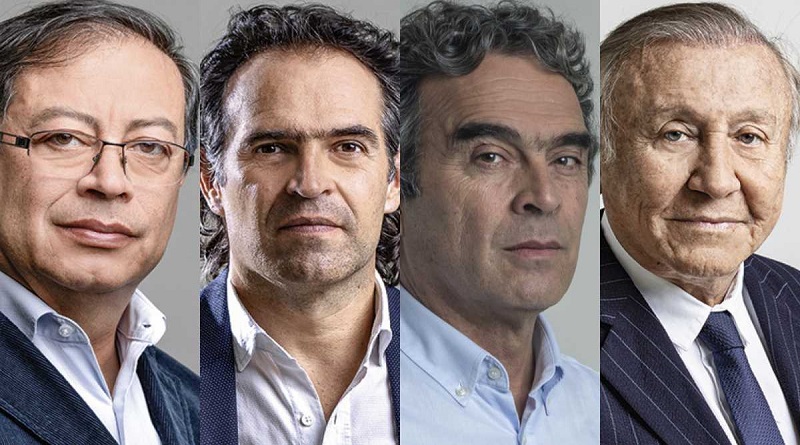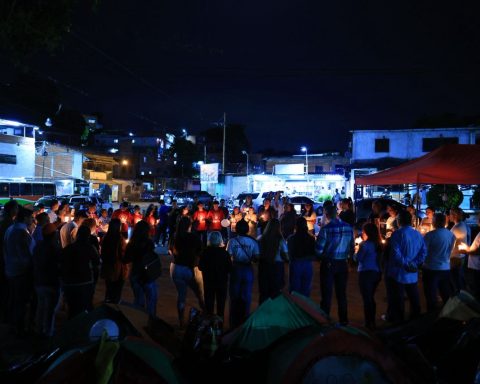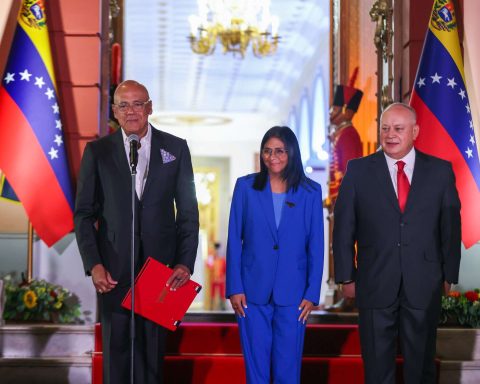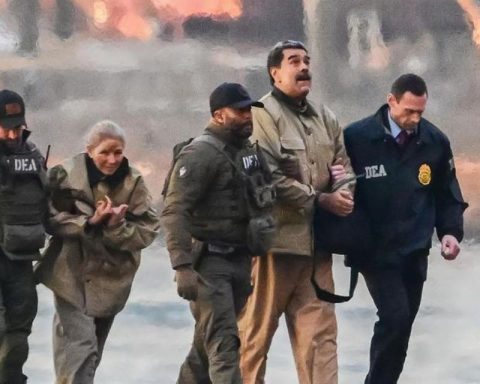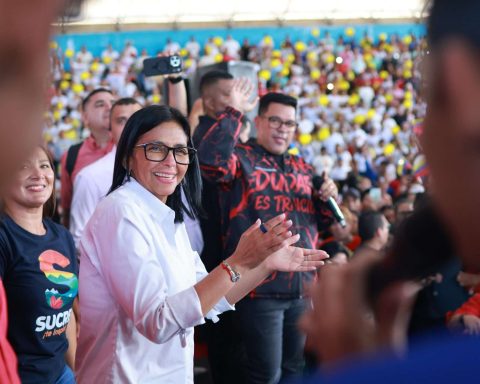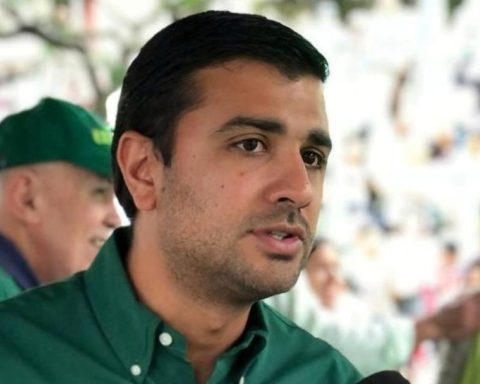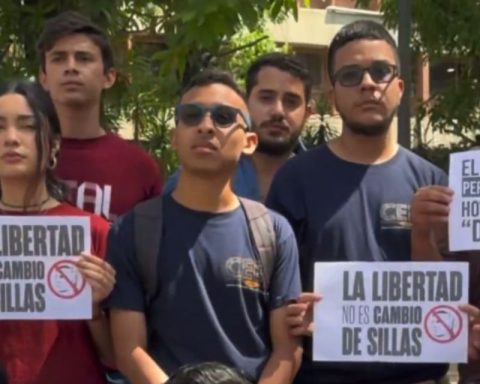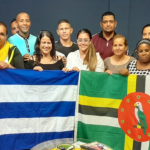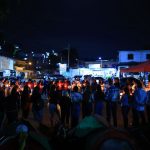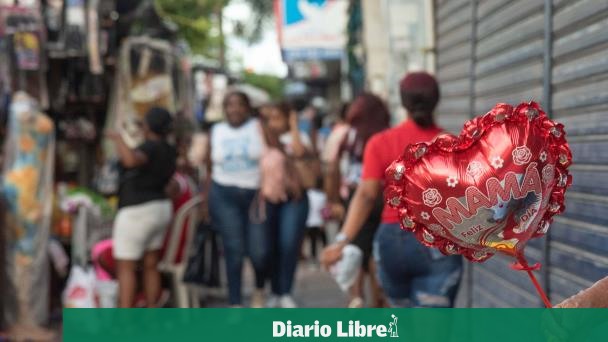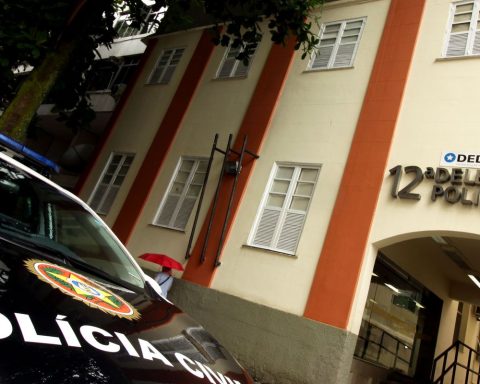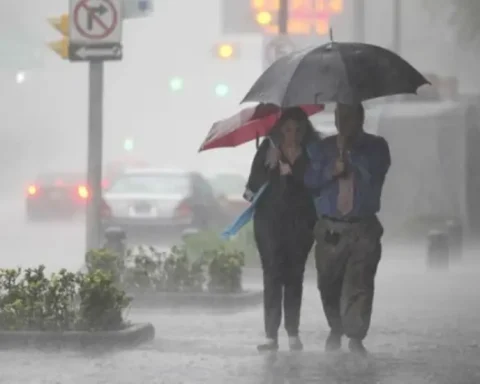On May 29, around 39 million voters will return to the polls to elect the next president and vice president of Colombia.
The president-elect, who will hold the reins of Colombia 2022-2026, could also change the landscape for the thousands of Venezuelan refugees and migrants in Colombia, indicates a special work by CNN en Español.
By April 2022, according to the Regional Interagency Coordination Platform for Refugees and Migrants from Venezuela, led jointly by UNHCR and IOM, the number of Venezuelans in Colombia was 1,842,390.
For more than three years, starting in February 2019, diplomatic relations between Caracas and Bogotá were broken, which is why part of the expectation revolves around whether the appointment of a new president could mean the resumption of bilateral relations. with Venezuela.
The outgoing government of Iván Duque decreed a Temporary Protection Statute for Venezuelan migrants.
Candidate Gustavo Petro has openly said that if he wins he will restore relations with Venezuela, including the reopening of the border with Venezuela.
For his part, Federico Gutiérrez says that there will be no diplomatic relations, but that he will look for a way to reactivate the border commercially.
Gustavo Petro, Historical Pact
Restoration of relations with Venezuela: Yes.
Gustavo Petro is the official candidate of the left who will compete again for the Presidency of Colombia, with Francia Márquez as his vice president.
“Colombia without xenophobia welcomes the migrant population as a subject of rights,” reads the leftist candidate’s government program.
It is indicated that the migrant population, mainly the Venezuelan population, will be guaranteed their fundamental rights and their integration will be promoted in “equal conditions with the Colombian population”, as well as decent conditions for returning to their countries of origin or transit.
“The unity of the peoples of South America, and the reestablishment of the Andean and Caribbean Pact will be our priority,” reads Petro’s government program, which does not talk about specific proposals with Venezuela. However, he indicates that the autonomy of the peoples will be respected and we will make our borders spaces for dialogue and integration.
“The borders with our neighbors and brothers will be what unites us and not what separates us,” reads the program.
“We will restore and strengthen dialogue with our neighbors with a view to promoting regional integration, friendly conflict resolution and the humanitarian, economic, social and violent crisis in some of the border areas,” he adds.
Federico Gutierrez, Team for Colombia
Restoration of relations with Venezuela: No.
Federico “Fico” Gutierrez is the right-wing presidential candidate for the presidential election, with Rodrigo Lara as his vice president.
Within the Gutiérrez government program, it is indicated that the implementation of the Temporary Protection Statute for Venezuelan migrants will be maintained and “we will work to take advantage of the opportunities for our country to welcome the migrant population.”
Likewise, the plan stipulates that the “social and comprehensive offer to the Venezuelan migrant population” eligible under the Temporary Protection Statute will be extended.
The right-wing candidate also proposes socioeconomic inclusion for Venezuelan migrants, as well as for returned Colombians.
Gutiérrez said in a debate in March that “Maduro cannot be recognized as a government, because it is a dictatorship” and that he will not reestablish relations with Venezuela. He pointed out that decisions must be made on commercial issues at the border, such as vehicular passage.
Rodolfo Hernández, League of Anticorruption Governors
Restoration of relations with Venezuela: Yes.
Rodolfo Hernández, former mayor of Bucaramanga, is the candidate for the presidency of Colombia for the Anti-Corruption Governors League movement, with Marelén Castillo as its vice president.
“The country has a historic debt with Venezuela,” reads the presidential candidate’s government program. In his proposals, Hernández stipulates that many Colombian families managed to prosper when Venezuela had a solid currency and economy, so “Colombia must advance in meeting solidarity objectives” towards Venezuelan migrants.
Among his proposals is designing a solidary migration policy “preserving the interests and needs of Colombians,” as well as reestablishing diplomatic and consular relations with Venezuela. And once this happens, “a program will be arranged in which said government finances the sustainability of its population living in Colombia.”
Hernández also proposes an international work plan to “assume the humanitarian contingency of the massive migration of Venezuelans” and the construction of a public policy for Colombians who return to the country from Venezuela.
The former Colombian candidate, Ingrid Betancourt, resigned from the presidential race in order not to divide the votes for a centrist candidate, and with the hope that Rodolfo Hernández could reach the second round of the elections.
Betancourt, whose kidnapping and release by the FARC made world news, had been running for president of Colombia with José Luis Esparza as her vice president.
Regarding Venezuela, Betancourt proposed in his government plan to “recover freedom and control of the border” by resuming bilateral relations with Venezuela to guarantee that Colombians have access to all diplomatic services in Venezuela.
He also spoke about the creation of educational and cultural programs in order to resolve the negative perception of migration, as well as guaranteeing compliance with the rights of migrants “which are already regulated” so that migrants “remain in legality and that contribute to the country’s economic growth”.
Sergio Fajardo, Hope Center
Restoration of relations with Venezuela: Yes
Sergio Fajardo has proclaimed himself the standard bearer of the central option in a highly polarized Colombia, with Luis Gilberto Murillo as his vice president.
“Recovering democracy in Venezuela and the reconstruction of its economy, by all Venezuelans, is a priority for Colombia and for the region, so that they can return to their country and live with dignity,” reads the policy proposals exterior of the center candidate.
Fajardo also highlights the importance of establishing direct communication between Bogotá and Caracas “to mitigate tensions and attend to binational issues,” such as the presence of illegal armed groups, organized crime, and citizen security.
“It is no less important to keep open, with the proper biosecurity measures, the formal border crossings that allow the regularization and legalization of the transit of people, goods and services between the two countries,” reads the candidate’s proposals.
In addition, there is talk of the reopening of the Colombian consulates in Venezuela to assist the more than 3 million Colombians residing in Venezuela, indicates the CNN report in Spanish.
